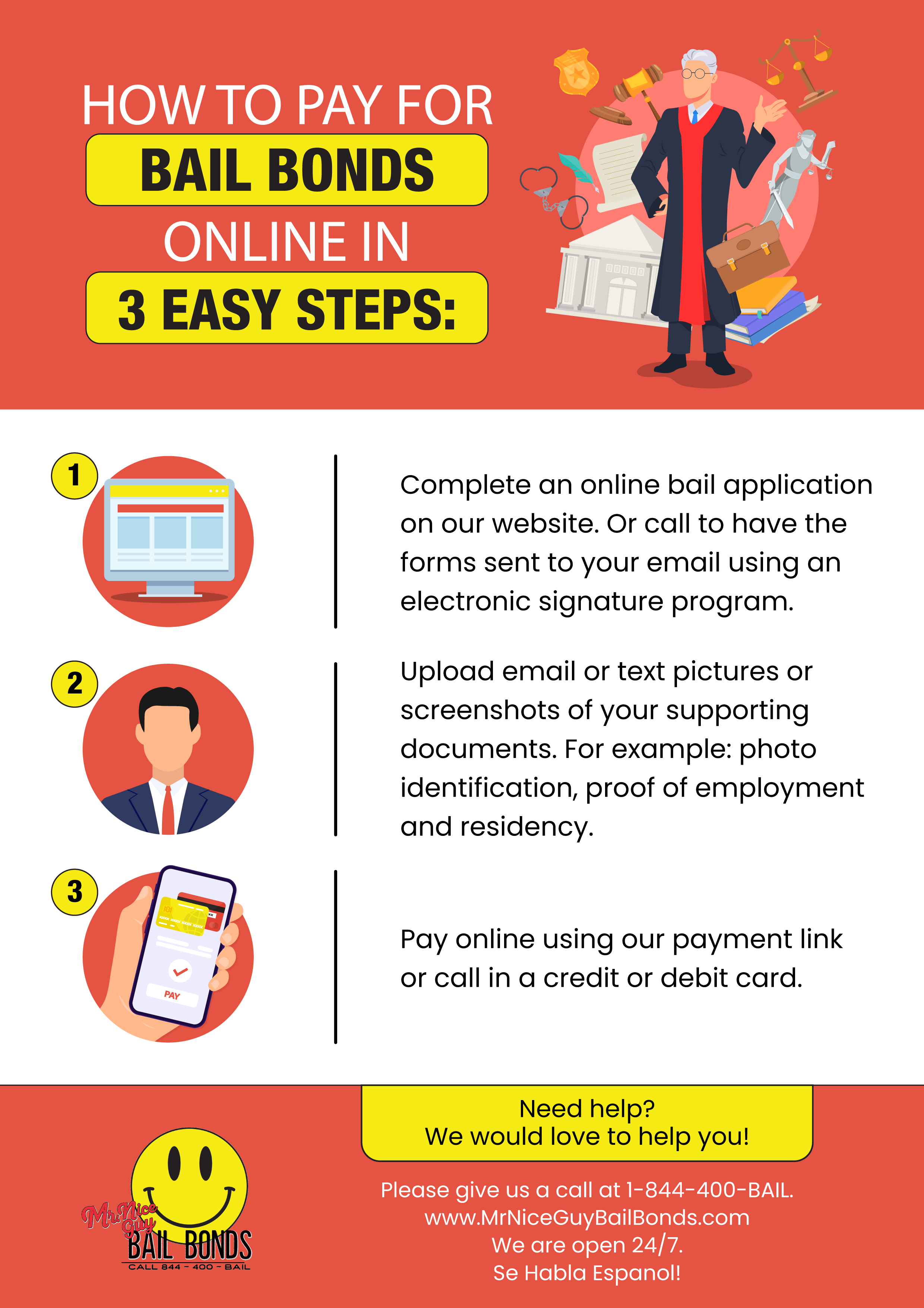Step-by-Step Guide for Bail Bonds.
Your Complete Guide to Comprehending Bond Bond Terms
Browsing the complexities of bail bond terms and problems is a vital component of efficiently taking care of legal challenges. Numerous types of bond bonds and their associated costs can substantially affect the decision-making process.
What Is a Bond Bond?
A bail bond is a contractual arrangement between an offender, a bail bondsman, and the court, guaranteeing that the accused will certainly appear for arranged court procedures in exchange for their launch from guardianship. bail bonds service. This lawful instrument offers to shield the rate of interests of the court by giving an economic motivation for the accused to follow judicial requirements
(bail bonds springfield ohio)Usually, when a defendant is jailed, they might be provided the alternative to upload bond, which is a financial amount established by the court. If the accused can not afford the bond, they can seek the aid of a bail bondsman. The bail bondsman bills a non-refundable cost-- usually a percent of the complete bail amount-- in exchange for posting the bail in support of the accused.
Upon the offender's release, the bail bond continues to be basically up until the verdict of the court case. Failure to show up in court might cause forfeiture of the bond amount, and the bondsman may go after the defendant to recover the costs sustained. bail bonds service. Recognizing the dynamics of bail bonds is crucial for defendants and their households as they navigate the judicial procedure.
Key Terms Clarified
Recognizing bail bonds involves familiarizing oneself with a number of vital terms that are indispensable to the process. One vital term is "bond," which describes the amount of money called for to protect the release of an accused from protection while awaiting trial. "Bond bondsman," or "bail bondsman," is an additional important term, signifying an expert that offers the needed funds for bail in exchange for a fee, typically a percentage of the complete bail amount.
" Collateral" is also considerable; it represents assets promised by the defendant or co-signer to ensure the bond's repayment. If the defendant fails to show up in court, the collateral might be waived. The term "indemnitor" describes the person who accepts be in charge of the bond, typically a member of the family or pal of the accused.

Kinds of Bail Bonds
Various kinds of bail bonds offer different purposes and satisfy particular circumstances in the lawful system. The most usual type is the guaranty bond, where a bondsman guarantees the accused's appearance in court in exchange for a charge, commonly 10% of the bond amount. This type is commonly utilized due to the fact that it allows people who can not afford the Read More Here full bond to protect their launch.
Another type is the cash money bond, which needs the complete bond amount to be paid in cash money to the court. This option is commonly favored for reduced bond amounts, as it guarantees the offender's launch without involving a bondsman (bail bonds service). If the defendant shows up in court as called for, the cash money is reimbursed at the verdict of the case
In addition, there are home bonds, where realty is used as collateral for the bond quantity. This can be a feasible choice for people who own residential or commercial property but lack liquid funds.
Finally, government bonds use to government instances and are commonly more difficult to obtain, frequently requiring the support of a specialized bond bondsman. Recognizing these variations is important for browsing the bail system efficiently.
Typical Mistaken Beliefs
False impressions about bail bonds usually lead to complication for offenders and their family members. One prevalent myth is that paying bail warranties launch from jail. In reality, bond serves as a monetary guarantee that the accused will show up at their arranged court hearings. If they stop working to do so, the bail amount may be forfeited.
An additional typical mistaken belief is that all bail bonds are the very same. There are several sorts of bond bonds, consisting of surety bonds, cash money bonds, and property bonds, each with unique features and needs. Recognizing these differences is crucial for making informed decisions.
Furthermore, many individuals think that bail bond agents are simply shylock. Actually, accredited bail bond representatives run within a controlled framework, billing a costs for their solutions, which is generally a percentage of the complete bond quantity.
Finally, some think that just affluent individuals can manage bail. Nevertheless, bail bond solutions are made to aid those that might not have immediate accessibility to huge amounts of money, permitting a more comprehensive sector of the populace to protect their release while awaiting test. Clear understanding of these mistaken beliefs can dramatically ease stress and anxiety during a tough time.
Recognizing Fees and Expenses
While navigating the bail bond process, it is necessary to understand the fees and costs linked with securing a bond. Bail bonds usually require a non-refundable premium, which is a percentage of the total bond amount set by the court. This costs typically ranges from 10% to 15%, depending upon state laws and the bail bond agency's policies.
In enhancement to the premium, there might be other charges entailed. These can include administrative charges for processing the bond, security charges if properties are required to safeguard the bond, and possible revival costs if the bond requires to be expanded. It is vital to ask the bail bond representative for an in-depth breakdown of all expenses to avoid unanticipated expenditures.
(bail bonds hamilton ohio)Moreover, some firms might use layaway plan, enabling customers to pay the costs in installments. Nevertheless, these strategies may incur additional charges or passion. Understanding these economic aspects ahead of time can aid people make educated choices and guarantee they are planned for the overall costs associated with the bail bond process. Constantly read the contract extensively and look for clarification on any unclear terms before proceeding.
Conclusion
